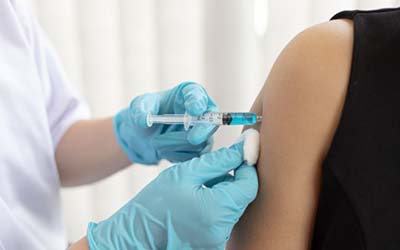
MDHHS working on new child welfare technology system

FOR IMMEDIATE RELEASE: May 4, 2021 CONTACT: Bob Wheaton. 517-241-2112, wheato MDHHS beginning work on new child welfare technology system that will help improve outcomes for children and families LANSING, Mich. – The Michigan Department of Health and Human Services (MDHHS) and its contractors this week are beginning design work on the first phase of a new child welfare technology system. The project represents another significant step in the department’s effort to overhaul its technology to better serve children and families and provide reliable data to track the performance of the state’s child welfare system, which involves Children’s Protective Services, foster care, adoption and juvenile justice. “This change will allow our workers to spend more time with children and families, which is our priority,” said Demetrius Starling, who took over as executive director of the MDHHS Children’s Services Agency Sunday, May 2. “This new system will provide more reliable information technology to the state employees who investigate child abuse and neglect allegations and help youth in foster care and those facing juvenile justice cases. The new system will be easy to navigate and less time-consuming to operate. Those of us in the child welfare field need reliable data to better identify the areas of our work that require more attention and resources. Our number one goal is to protect the safety and well-being of the children and families we serve. A new information system will assist us in this important work.” The project kickoff includes efforts to gather feedback from users – which include MDHHS and private agency partners child welfare staff – and other stakeholders. In October 2020 the department secured funding for an information technology contract to begin developing a Comprehensive Child Welfare Information System. In March 2021, MDHHS awarded an IT development contract to Deloitte Consultants, LLP, to design, develop and implement the first module of the new system, which will be used for licensing child welfare agencies and foster families. The contract offers options for the selected vendor to continue with additional modules after proving success in the first module. Deloitte has implemented Comprehensive Child Welfare Information Systems in two states and is working with two other states on their systems. MDHHS will replace the current Michigan Statewide Automated Child Welfare Information System – commonly known as MiSACWIS – in a phased approach. As the existing system is replaced incrementally one module at a time, the other portions of MiSACWIS will continue to be used. This transition is expected to be completed over four to five years. Federally funded child welfare systems had been required to collect and submit data through Statewide Automated Child Welfare Information Systems. However, the federal government is now requiring states to move to more modern Comprehensive Child Welfare Information Systems to receive full federal funding. Approximately 50 percent of the cost of the new system will be paid for with federal dollars. New system requirements are intended to allow for greater flexibility and support the use of improved technology to better support child welfare practice. MDHHS will work with Deloitte to initiate the use of new technology using a Platform-as-a-Service, which would rely at its foundation on technology that is routinely updated and enhanced. The modular approach is consistent with modern best practice for technology development, and the reliance on Platform-as-a-Service will increase the reliability of the system while reducing costs for development and operations. The initiation of this transition to new technology aligns well with the other transformations under way in the Children’s Services Agency. With a focus on reform to establish a family well-being child welfare system to provide additional services to prevent placements in foster care and enhance family functioning in the home, many of the agency’s practices are transforming. Developing a child welfare licensing module on new technology offers the opportunity to reimagine business processes and an opportunity for transformation as well. |





